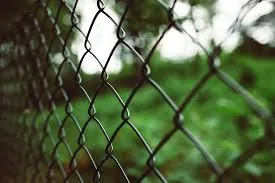

Field fences come in various styles and materials, catering to diverse needs and budgets. Traditional wooden post-and-rail fences provide a rustic aesthetic, ideal for properties seeking a classic countryside appeal. Meanwhile, modern solutions such as high-tensile wires and electric fencing offer low-maintenance, long-lasting options that stand up to harsh weather conditions and pressure. Chain-link fences represent another durable choice, especially in areas exposed to extreme environmental stressors. To maximize the effectiveness and longevity of field fences, regular maintenance is crucial. Farmers should routinely check for damage, rust, or wear, especially following severe weather events. Keeping fence lines clear of vegetation not only prolongs the life of the fence but also ensures its effectiveness by maintaining electric current flow or visibility to livestock. The installation process varies depending on the type of fence, and professional installation can often be a wise investment. Expert installers can offer guidance on optimal placement and installation practices, ensuring the fence is not only effective but also complies with local regulations. They are knowledgeable in accounting for topographical variations and environmental factors that could affect the stability and functionality of the fence. In terms of technological advancement, smart fencing solutions are beginning to permeate the market. These systems integrate technology such as motion sensors and notifications, allowing farmers to monitor fence integrity and activity remotely. This innovation provides peace of mind, knowing that any breach or malfunction can be promptly addressed, thus safeguarding livestock and crops effectively. Overall, the strategic implementation of field fences is a vital practice for modern farmers and property owners. Through careful selection of materials and styles, regular maintenance, and embracing innovative solutions, field fences will continue to play a pivotal role in agricultural success and property management. Hence, investing in the right fence not only enhances immediate operational efficiency but also contributes to long-term sustainability and profitability.
Prev:
Next:
















